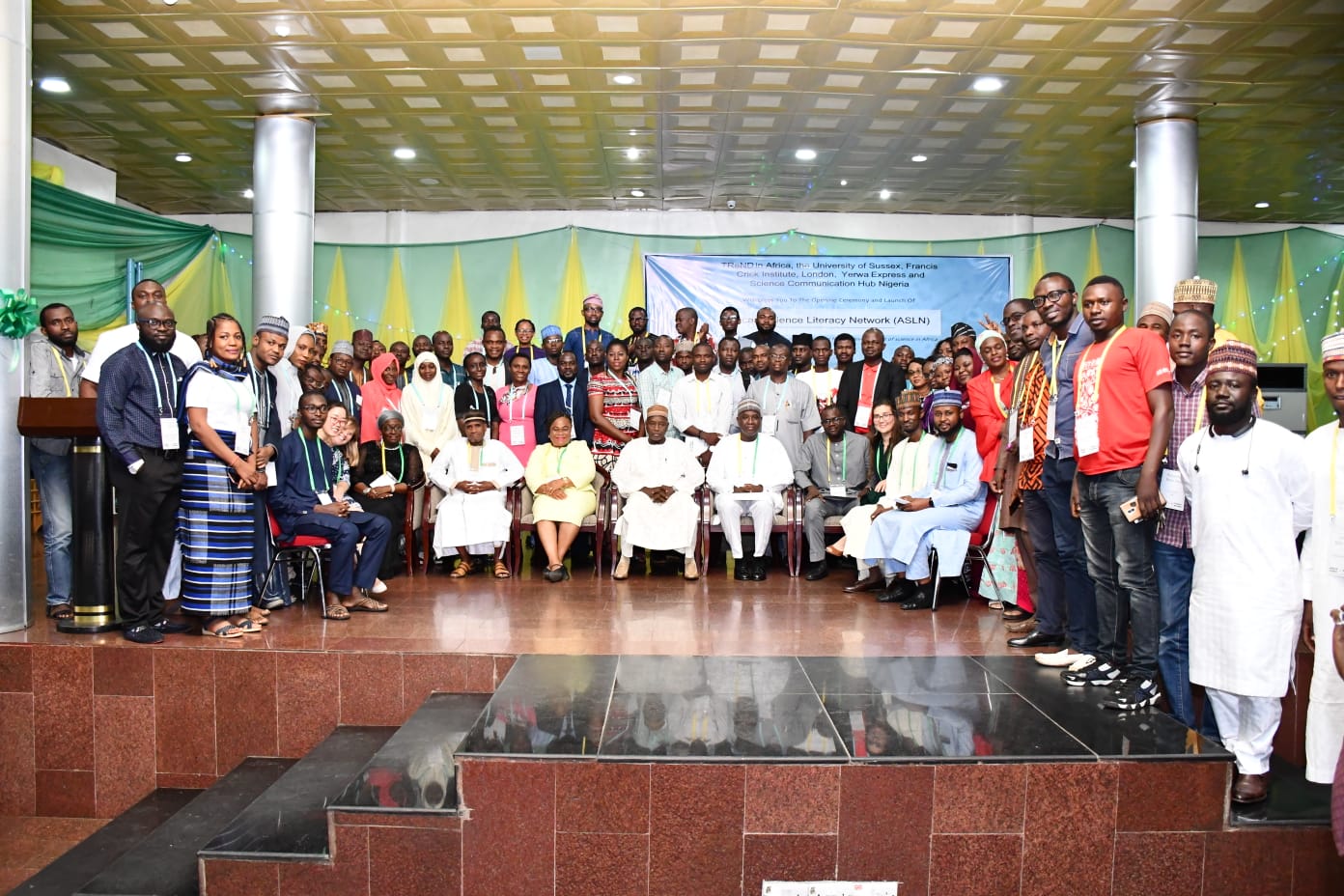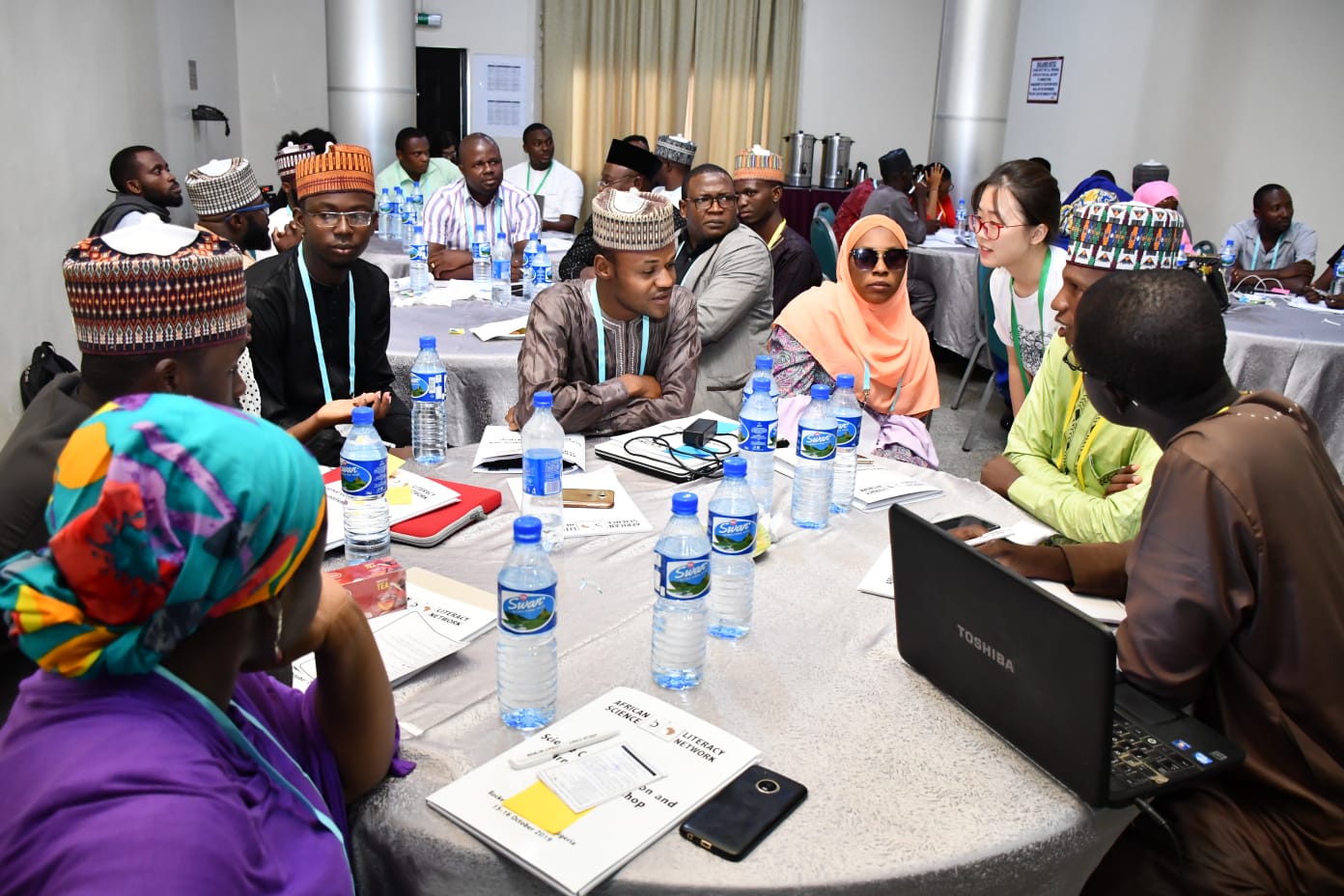ANALYSIS: Bridging the gap between science and society in Nigeria
Scientists and journalists from across the Nigerian federation gathered in Abuja, last week, for a 2-day workshop themed: “Boosting science communication for the development of science in Africa,” aimed at fostering a close working relationship between scientists and journalists, so as to enhance the Nigerian public’s understanding of science.

Science is increasingly becoming a part of our daily lives: it is in our phones, drugs, vaccines, food and clothes; it unravels the mysteries of existence in our universe and provides explanation to numerous life phenomena. For instance, science explains how the food we consume is digested – at the mercy of some chemical substances in our body called enzymes – to produce packets of energy in the body.
However, lack of effective science communication means the public do not, to a large extent, understand and appreciate the big role science plays in tackling our major societal challenges – be they public health, food insecurity, environmental or climate change related challenges. Simply put, science, together with technology and innovation helps transform human lives and consequently the economy.
The huge deficit in science communication means an equally enormous gap exist between science and policymaking, hence the low-level use of evidenced-based scientific information in decision making. This is a consequence of lack of political will on the part of the government to adequately fund scientific research and dissemination of scientific findings through the media.
Subsequently, this has led to disingenuous misconstruction of scientific facts and high level of misconceptions about science, resulting in the general public`s mistrust about science, which contributes to the slow progress in the development of science in the country. Therefore, scientists cannot be squarely blamed for failing to effectively communicate their discoveries to the general public.
It was against this backdrop that the African Science Literacy Network (ASLN) was launched Monday, October 14 in Abuja, Nigeria. The ASLN is a Wellcome Trust-funded initiative that came about thanks to a partnership between Teaching and Research in Neuroscience for Development (TReND) in Africa, the University of Sussex, UK, Francis Crick Institute London, Yerwa Express and Science Communication Hub Nigeria.
“The idea of the network is to create a platform that would enable scientists and journalists to form a partnership and learn about ways of engaging a wider audience with science; to support more accurate science communication with the general population so as facilitate the rise of Africa as a science superpower,” says Mahmoud Bukar Maina, director of outreach at the Teaching and Research in Neuroscience for Development (TReND) in Africa cum ASLN’s project lead, in his message on the occasion of the launch of the ASLN.
“As someone who was born and partly educated in Nigeria, I observed that there`s a high level of cultural and religious misconceptions about science in our communities including poor visibility of science role models, inadequate science equipment in schools, as well as low support for science by the public and government. These problems affect our livelihood and education thus, hindering our potential as a country in the area of science and technology,” said Maina.

Science communication entails the sharing of information and raising of awareness about science-related topics. It can simply be described as the breaking down of dense, dull, and technical scientific concepts into engaging pieces of information for public consumption. However, achieving effective science communication and bringing science closer to the people as well as building a scientific culture in society requires a lot of creativity and skills.
It was on this basis the ASLN trained a combination of 70 scientists and journalists from across the Nigerian federation at its maiden science communication and science journalism workshop, held between October 14 and 16. The workshop was part of efforts to boost science communication and journalism in the country. Workshop participants were exposed to various topics around science communication and journalism, ranging from how to access and interpret scientific data; how to write credible science stories; to how to identify truths and myths in science; as well as the use of digital media to engage and communicate science to the public, amongst others.
Ahmed Sherif Isa, a scientist from the Department of Human Physiology at Ahmadu Bello University, Zaria, was one of the participants at the ASLN training who said: “I find it difficult to communicate my research findings to the lay audience including healthcare personnel because of the use of scientific jargons. The [ASLN] workshop has exposed me to various ways of simplifying scientific information to the lay audience.”
Isa, whose scientific research is focused on pain said there`s a high level of misperception about pain in Nigeria. “Pain is a very important topic and a major reason why patients visit the hospitals but in our society, people will not believe that you are in pain until they see physical evidence. Science communication can be used to change public perception about pain and this training has taught me how to go about it,” he said.
Although scientists may have little or no understanding of journalistic nuances hence unexcited about relating with the media, both scientists and journalists share one thing in common: dealing with facts. Thus, as a partnership between scientists and journalists aimed at boosting science communication in Nigeria, the ASLN will doubtlessly help enhance the Nigerian public’s understanding of science and consequently leads to trust and support for the science community in Nigeria.
Abdullahi Tsanni is a 2019 African Science Literacy Network (ASLN) Fellow.; he was one of the trained science journalists under the ASLN initiative












